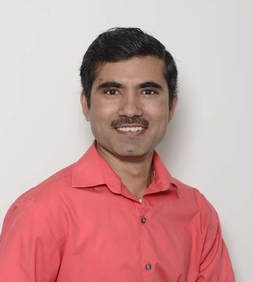Professor Khajamohiddin Syed, one of the University of Zululand’s (UNIZULU) eminent academics, has recently been selected to be a visiting professor at the University of Warsaw, Poland for a period of one month.
His selection was made as part of the Visiting Professor Programme (VPP) at the University of Warsaw Biological and Chemical Research Centre (CNBCh UW). The VPP targets outstanding scientists who work outside of Poland and are eager to share their knowledge and experience with scientists working at the CNBCh UW. Apart from knowledge sharing, the programme also promotes the establishment of collaboration and student exchange.
To be selected, Prof Syed had to follow a stringent application process which involved being peer-reviewed by a committee. Among the areas that are assessed is the visiting professor’s contribution to the development of their discipline (the number of publications in high-ranking scientific journals serves as evidence), leadership in the scientific community, international recognition (as evidenced by membership in national and international committees and societies, editorial offices, etc.) and awards granted, among other criteria.
Speaking about his visit, Prof Syed said he is looking forward to it as it will not only strengthen collaboration, but also seek university-level collaboration from which other staff members belonging to different departments from UNIZULU will benefit.
The Dean of the Faculty of Science and Agriculture Professor Nokuthula Kunene congratulated Prof Syed, saying “his nomination is a validation of his hard work and the quality of his research”.
Prof Syed’s research involves all living and non-living entities in the world, such as viruses. Working together with researchers from the United States of America, United Kingdom, Canada, Europe, India, Chile and South Korea, the academic names P450 enzymes from all microbes. P450 enzymes are very important in the development of drugs that protect humans from diseases. Prof Syed’s laboratory not only names the P450 enzymes, but is also involved in designing P450-enzyme-based new drugs against pathogens.
“I am proud to say that we, from the University of Zululand, created a P450 database (http://www.p450.unizulu.ac.za/) that is now used by researchers across the world. This is a great achievement as this is a unique database for P450 research in the world, containing P450s belonging to all organisms. We successfully launched this website with researchers from Poland (Prof Dominik Gront) and the USA (Prof David R Nelson). This page is now active and researchers across the word are using it.
“Research collaboration with Prof Dominik Gront is already taking place and because of this collaborative effort our doctoral student, Mrs OO Akapo, has visited the University of Warsaw to complete bioinformatics analysis towards her doctoral degree,” Prof Syed highlighted.
He plans to visit the University of Warsaw once the Covid-19 situation becomes contained and international flights resume. The modest professor attributed his academic success to his students from his laboratory for their tireless work and also the ICT Department for helping to create the P450 database.
By Precious Shamase

